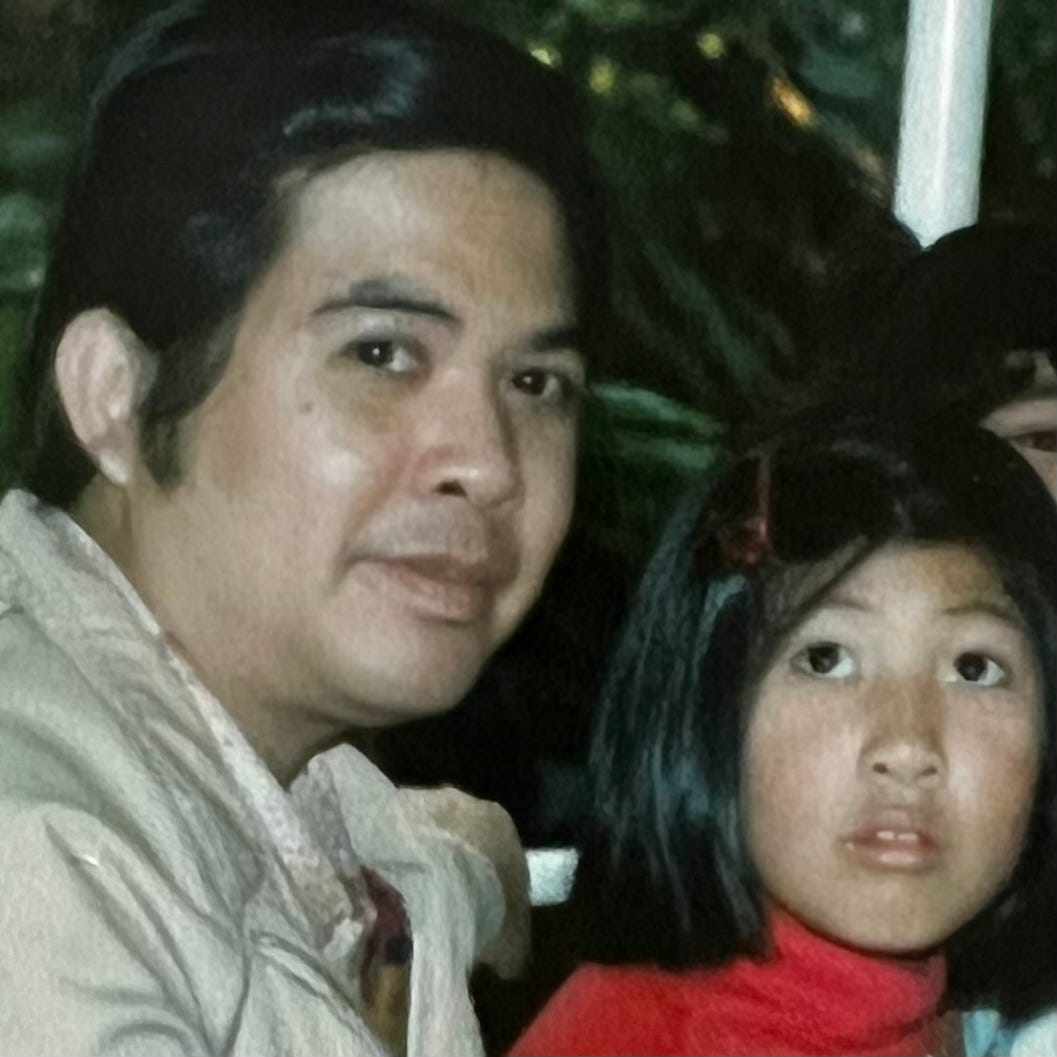18 Years of Fatherlessness
On the anniversary of my father's death, I realize that grief is like a child.
Eighteen years ago today, my father died after a harrowingly short three months of knowing he had pancreatic cancer. He was 59.
His death came at such a horrific speed—and yet slow enough for it to be utter torture. My round-faced father, who was never thin, became skeletal in just a few months.
Not long ago I read
Substack post on the death of his father. Michael’s description of those last days, the emotional exhaustion of a dying man saying goodbye so many times over and over again to those who came to see him, is something I could have written back when it was still fresh.Michael’s writing resonated with me because he and I were adults when our parents died, and we both had difficult relationships with other fathers. Yet towards the end we are sometimes given the grace of reconciliation. There is nothing to change the fact that we are always our father’s children. That type of love, that deep love that spans many prodigal years, is so great that when the father is dying it can create this visceral fear in the surviving child. Michael writes about seeing his father one last time,
“I swallowed and my heart thudded against my chest. My gut tightened. My throat constricted. I felt my palms go sweaty and warm. I got up and walked through the downstairs bedroom and slowly up the stairs. I took my time, placing one foot at a time on each step. Each step creaked under my nervous, uncertain weight.”
Michael finds that his father had died in his bed.
I appreciate his ability to write so openly about the last days with his father. I don’t think I have been able to fully articulate my own experience, and so the best I have been able to do is find other people who can write about their own similar griefs.
This Khalil Gibran’s poem, “On Pain,” also gets to the heart of what feels trapped:
Your pain is the breaking of the shell that encloses your understanding.
Even as the stone of the fruit must break, that its heart may stand in the sun, so must you know pain.
And could you keep your heart in wonder at the daily miracles of your life your pain would not seem less wondrous than your joy;
And you would accept the seasons of your heart, even as you have always accepted the seasons that pass over your fields.
And you would watch with serenity through the winters of your grief.Eighteen years is a notable amount of time. A date of maturation and self-determination. Voting age and independence.
When my father died, my infant grief needed to be tended to frequently and at odd times, like in the middle of a sleepless night or while driving in the car. Crying was expected, and it needed to be tended to.
Years went by and the crying was less frequent. By then grief could speak for itself. The misery that seemed to last forever began to sync with real time. Days and nights no longer seemed longer than they actually were.
The Harem Renaissance poet Clarissa Scott Delany wrote a poem about grief whose title suggests a limbo-like sense of time.
Interim
The night was made for rest and sleep,
For winds that softly sigh;
It was not made for grief and tears;
So then why do I cry?
The wind that blows through leafy trees
Is soft and warm and sweet;
For me the night is a gracious cloak
To hide my soul’s defeat.
Just one dark hour of shaken depths,
Of bitter black despair—
Another day will find me brave,
And not afraid to dare. Delany compresses time so that grief is solved “in one dark hour.” But it never feels like overnight, does it? Not when you are in that newborn phase of grief. No, it feels like forever when you are in the thick of it.
But as a mother of adult children I realize that eighteen years also feels like overnight. Those days of cradling that wailing, feverish infant in the wee hours? Gone. The next thing you know he is old enough to mark his first ballot. He is old enough to leave for college. He is old enough to move on.
Grief matures to heartbreaking memory that leaves and returns, like a grown son who remembers to visit home.





I'm late to this essay, Zina, but it is lovely and true. "Grief matures to heartbreaking memory that leaves and returns, like a grown son who remembers to visit home."
Appreciate this:
Loved the poem Interim--especially the surprise of the last line. Making that connection between despair and the risks we are willing to take. I feel it's true for me. When I'm in despair, I just want to find comfort in what's familiar---When I'm hopeful and full of joy is when I'm willing to dare.
Thank you.
Just one dark hour of shaken depths,
Of bitter black despair—
Another day will find me brave,
And not afraid to dare.